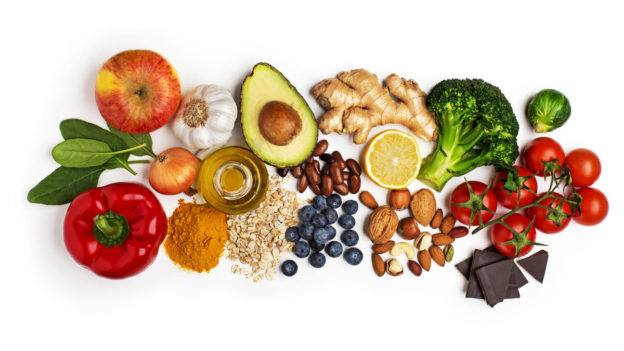Eat less processed foods. There you have it.
Most of you have heard me talk about processed foods before. Their detriment cannot be overstated.
There are so many health problems associated with eating processed food.
One study found that eating processed foods lead to an early death. The following is a list of health issues that have been linked to eating processed foods and foods rich in sugar:
- Unbalanced microbiome
- Leaky gut
- Inflammation
- Heart disease
- High blood pressure
- Stroke
- Obesity
- Diabetes
- Dementia
- Hypertension
- Dyslipidemia
- Alzheimer’s
- Aging
- Brain health
- ADHD
- Anxiety
- Mood swings
- Cancers
- Sleep apnea
- Gallbladder disease
- Liver disease
- Gynecological problems such as infertility
- Kidney disease
- Headaches
- Fatigue
- Cataracts
- Arthritis
- Rash/eczema in children
- Gallstones
- Hemorrhoids
- An increase in reactive oxygen species, in turn damaging cells and tissues
- A reduction in high-density lipoproteins – the good cholesterol!
- Interference with ability to absorb calcium and magnesium
- An over-acidic digestive tract
- A decrease growth hormone in the body – problematic for growing children
- Increased likelihood of development of food allergies
- Decreased testosterone production
- Can cause exacerbation of acne
- Can cause free radical and oxidative stress
- Slow function of adrenal glands
The following are the health issues that can be prevented, treated, or improved by eating unprocessed whole foods:
- Microbiome imbalance
- All GI disease (IBS, IBD, GERD)
- Heart disease
- Obesity
- Cellulite
- Waist circumference
- Abdominal fat
- Diabetes
- Mood
- Cognition and brain function
- ADHD
- Autism
- Dementia
- Menopause
- Hiatal hernia
- Kidney stones
- Cataracts
- Arthritis
- Rash/eczema in children
- Gallstones
- Hemorrhoids
- An increase in reactive oxygen species, in turn damaging cells and tissues
- A reduction in high-density lipoproteins – the good cholesterol!
- Interference with ability to absorb calcium and magnesium
- An over-acidic digestive tract
- A decrease growth hormone in the body – problematic for growing children
- Increased likelihood of development of food allergies
- Decreased testosterone production
- Can cause exacerbation of acne
- Can cause free radical and oxidative stress
- Slow function of adrenal glands
- Gallstones
- Inflammation
- Cancer
- Cataracts
- Arthritis
- Diverticulosis
- Vaginal infections
- Fibromyalgia
- Multiple sclerosis
- Parkinson’s disease
- Age-related macular degeneration
- Body odor
- Aging
- Acne
- Allergies
- High cholesterol
- High blood pressure
- Eczema
- Menstrual breast pain
- Oral health
These lists were first published in my eBook.
Why are processed foods so bad?
Three reasons, and each are associated with the health issues above (in the first list):
- Sugar
- Processed starches, refined flours
- Vegetable oils that are high in pro-inflammatory omega-6s
How to eat more whole foods and less processed foods?
- Drink more water and less soda, juice, or coffee “drinks”
- Eat more potatoes and whole grains (rice, quinoa) and less breads, cereals, and pasta
- Make your own salad dressing with olive oil and eat less store bought salad dressings (made with vegetable oils)
- Cook fresh whole foods (chicken, potatoes, broccoli) at home and eat less take out (pizza, chinese, etc)
- Have fruit handy to avoid going to the vending machine when you need a snack.
- Find minimally processed foods as options
Would you like more ideas on how to eat whole foods? If so, email me and let me know or write in the comments below!
Share this article on social media!



